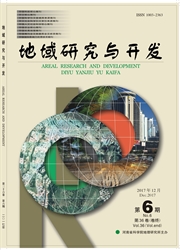

 中文摘要:
中文摘要:
基于空间剥夺理论,选取123份网络文帖,运用网络文本分析方法并借助SPSS17.0软件分析西安城中村改造中流动人口的空间剥夺结构。西安城中村改造加剧了城中村流动人口的空间剥夺,从资源、情感和机会三方面形成了多重剥夺结构。在资源空间剥夺中,主要产生了由居住、餐饮、娱乐、购物构成的生活类型空间剥夺;情感空间主要体现在与梦想、氛围、怀恋、热闹、亲近等词汇相关的诸多方面,并随着其物质载体的消逝而产生了情感空间剥夺;机会空间剥夺表现在降低其社区资源的可接近性,主客观博弈的结果决定了城中村流动人口的去留。在此基础之上,对城中村改造和城市建设提出了对策建议。
 英文摘要:
英文摘要:
Adopting theories of spatial deprivation, this paper, selecting 123 pieces of web posts, using Web Content Analysis and SPSS 17.0 ,analyzed the spatial deprivation of the floating population in the transformation of urban villages, and concluded that the transformation of urban villages in Xi' an aggravates the spatial deprivation of the floating population, and formed a conformation of deprivation consisting aspects of resources, emotion and op- portunities; the spatial deprivation of resources relates to spatial deprivation of household, dining, entertainment, shopping and other daily activies ; space of emotion was reflected by words like dream, atmosphere, nostalgia, lively, and closeness, the disappearance of materialized carriers relevant to those words caused the spatial deprivation of emotion; the spatial deprivation of opportunities reduced the accessibility to community resources and determines the whereabouts of the floating population in urban villages during the subjective and objective gaming process. In the end, this paper provides suggestions accordingly.
 同期刊论文项目
同期刊论文项目
 同项目期刊论文
同项目期刊论文
 期刊信息
期刊信息
